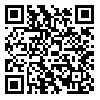Sun, Feb 22, 2026
[Archive]
Volume 11, Issue 1 (February 2024)
IJML 2024, 11(1): 72-85 |
Back to browse issues page
Download citation:
BibTeX | RIS | EndNote | Medlars | ProCite | Reference Manager | RefWorks
Send citation to:



BibTeX | RIS | EndNote | Medlars | ProCite | Reference Manager | RefWorks
Send citation to:
Azadbakht M, Bagheri P, Akbarzadeh M, Foruozandeh H, Khaleghi A, Gholami M S, et al . Frequency of Blood Components Wastages and Related Factors in Fars Blood Transfusion Centers, Iran. IJML 2024; 11 (1) :72-85
URL: http://ijml.ssu.ac.ir/article-1-494-en.html
URL: http://ijml.ssu.ac.ir/article-1-494-en.html
Mojtaba Azadbakht 
 , Parisa Bagheri
, Parisa Bagheri 
 , Majid Akbarzadeh
, Majid Akbarzadeh 
 , Hossein Foruozandeh *
, Hossein Foruozandeh * 
 , Aliasghar Khaleghi
, Aliasghar Khaleghi 
 , Mohammad Saeed Gholami
, Mohammad Saeed Gholami 
 , Davood Zarei
, Davood Zarei 
 , Zahra Nasiri
, Zahra Nasiri 
 , Amir Abbas Asadi
, Amir Abbas Asadi 


 , Parisa Bagheri
, Parisa Bagheri 
 , Majid Akbarzadeh
, Majid Akbarzadeh 
 , Hossein Foruozandeh *
, Hossein Foruozandeh * 
 , Aliasghar Khaleghi
, Aliasghar Khaleghi 
 , Mohammad Saeed Gholami
, Mohammad Saeed Gholami 
 , Davood Zarei
, Davood Zarei 
 , Zahra Nasiri
, Zahra Nasiri 
 , Amir Abbas Asadi
, Amir Abbas Asadi 

Cellular and Molecular Research Center, Gerash University of Medical Sciences, Gerash, Iran
Abstract: (953 Views)
Introduction: Blood component waste is an important issue in all blood transfusion centers. Therefore, reducing and managing these wastages are a major concern in blood transfusion centers. The present study examined the causes and frequency of blood product wastage in blood transfusion centers of Fars Province from 2015 to 2020.
Materials and Methods: This is a descriptive and retrospective study, and the cause and frequency of red blood cell, platelet, plasma and cryoprecipitate wastage from 2015 to 2020 were evaluated. The data related to the blood product wastage were extracted from the comprehensive software of the Blood Transfusion Organization (Negareh). Then, it was analyzed using SPSS software version 25.
Results: The total amount of waste was equal to 164981 units. The highest percentage of wastage of products was in 2015 (8.12%), 2016 (7.15 %) and 2017 (6.75 %), respectively. The most discarded products were whole blood, cryoprecipitate and platelet, respectively. Also, the leading causes of waste included positive screening test results, expiration date, contamination, blood group incompatibility, and abnormal and bloody color, respectively.
Conclusion: The authors concluded that blood component wastage has a dropping pattern in this period. Proper management and continuous training of technical staff are important in reducing blood product wastage.
Materials and Methods: This is a descriptive and retrospective study, and the cause and frequency of red blood cell, platelet, plasma and cryoprecipitate wastage from 2015 to 2020 were evaluated. The data related to the blood product wastage were extracted from the comprehensive software of the Blood Transfusion Organization (Negareh). Then, it was analyzed using SPSS software version 25.
Results: The total amount of waste was equal to 164981 units. The highest percentage of wastage of products was in 2015 (8.12%), 2016 (7.15 %) and 2017 (6.75 %), respectively. The most discarded products were whole blood, cryoprecipitate and platelet, respectively. Also, the leading causes of waste included positive screening test results, expiration date, contamination, blood group incompatibility, and abnormal and bloody color, respectively.
Conclusion: The authors concluded that blood component wastage has a dropping pattern in this period. Proper management and continuous training of technical staff are important in reducing blood product wastage.
Type of Study: Research |
Subject:
Hematology & Blood Banking
Received: 2023/09/10 | Accepted: 2024/06/23 | Published: 2024/10/1
Received: 2023/09/10 | Accepted: 2024/06/23 | Published: 2024/10/1
Send email to the article author
| Rights and permissions | |
 |
This work is licensed under a Creative Commons Attribution-NonCommercial 4.0 International License. |




